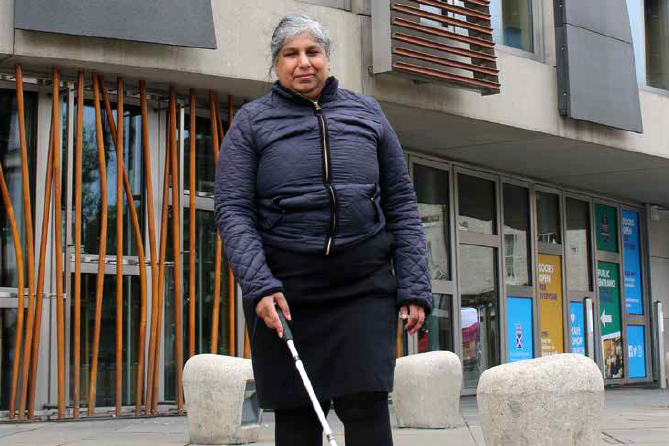Media release: New cervical screening standards urge better support for women with sight loss
The distressing cervical screening experiences of women with sight loss have been used to help shape new standards to improve how procedures are carried out in future.
Healthcare Improvement Scotland worked with the Royal National Institute for the Blind (RNIB) to hear the feedback of blind and partially sighted women who’d undergone cervical screening to ensure the standards meet the needs of everyone who will use the service now and in future.
As a result of their testimonies, which included being in pain and feeling unsupported, Healthcare Improvement Scotland has now published new standards to improve cervical screening care.
The standards set out a blueprint for what good care looks like. They include ensuring healthcare professionals are trained to support women make informed choices and receive accessible information about screening. Standards are statements of levels of service performance that the public should expect from health services.
Amongst the testimonies that Healthcare Improvement Scotland heard included the cervical screening experience of Kirin from Edinburgh, who is registered blind.
“I only went once and it went disastrously wrong. It was very painful and I didn’t know what was going to happen, or when it was going to happen.
“The nurse took no time to explain what was going to happen or what the procedure entailed. Having to position myself on the table with no sight was incredibly difficult. I have not and will not go back.”
Safia Qureshi, Healthcare Improvement Scotland Director of Evidence and Digital, said:
“We are very grateful to all the women who provided such honest and moving testimonies of their experiences. Their willingness to do this has been invaluable for us in being able to set out the best way forward for standards of cervical screening.
“It is of the utmost importance that everyone can attend these potentially life-saving screenings with dignity and all the support they need.”
Director of Evidence and Digital, Healthcare Improvement Scotland
Around six women in Scotland are diagnosed with cervical cancer each week, and screening plays a key role in prevention.
Screening is offered to all people with a cervix in Scotland from age 25 to 64 and aims to detect changes in cervical cells before they develop into cervical cancer.
The RNIB Scotland says more than 100,000 blind and partially sighted women in Scotland face a range of barriers in accessing cervical screening.
“When services are inaccessible, trust is broken, and people are pushed away from the very care meant to protect them. Ensuring screenings are person-centred and accessible isn’t just about compliance, it’s about saving lives.
“We are especially pleased to see the standards reflecting the need for staff undertaking cervical screening to be compassionate and ensure women feel supported.”
NHS Engagement Manager, RNIB Scotland
Ends
Notes to editor
Healthcare Improvement Scotland’s statutory role is to help improve the quality of health and care, provide information to the public about the quality of health and care services, monitor public involvement, and to evaluate and provide advice on the clinical and cost-effectiveness of medicines and health technologies.
To read the standards: Cervical screening standards
Attached is a pic of Kirin from Edinburgh and a pic of Safia Qureshi, Healthcare Improvement Scotland Director of Evidence and Digital.


